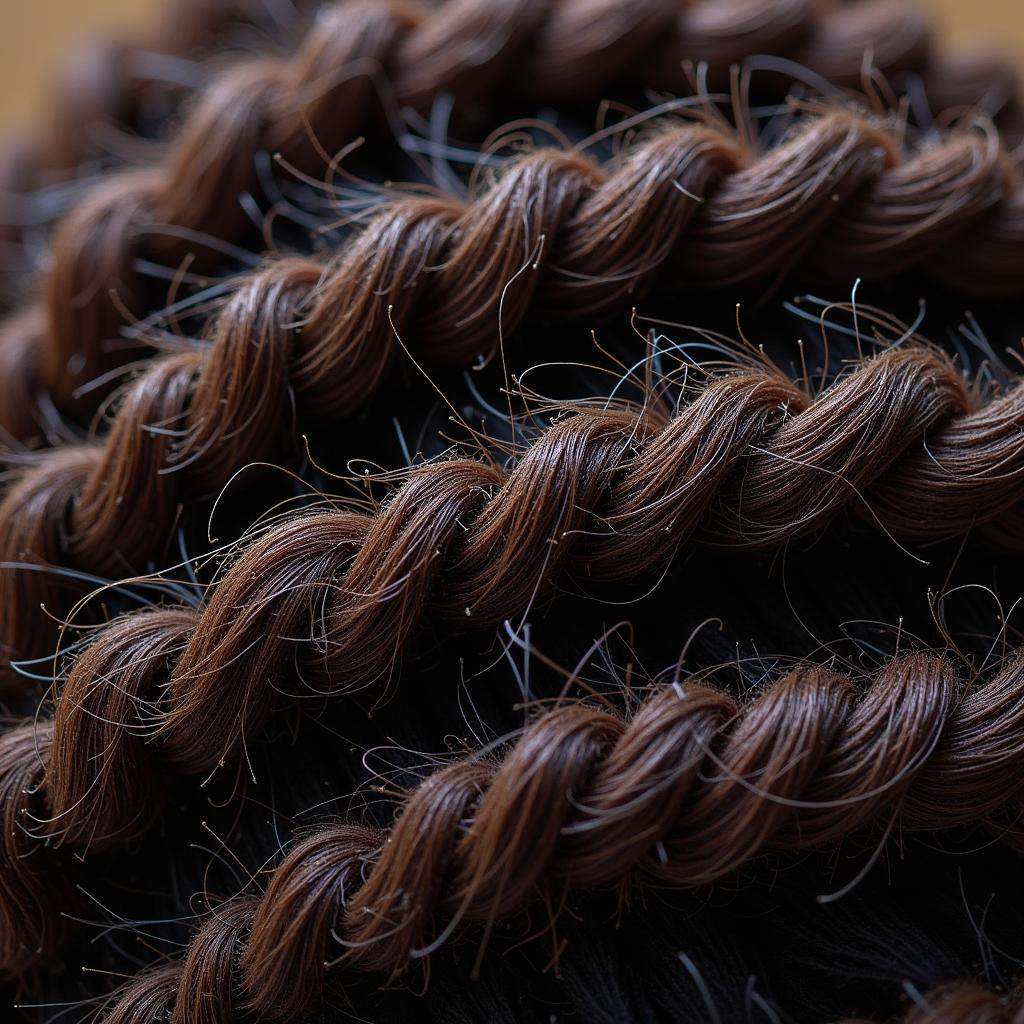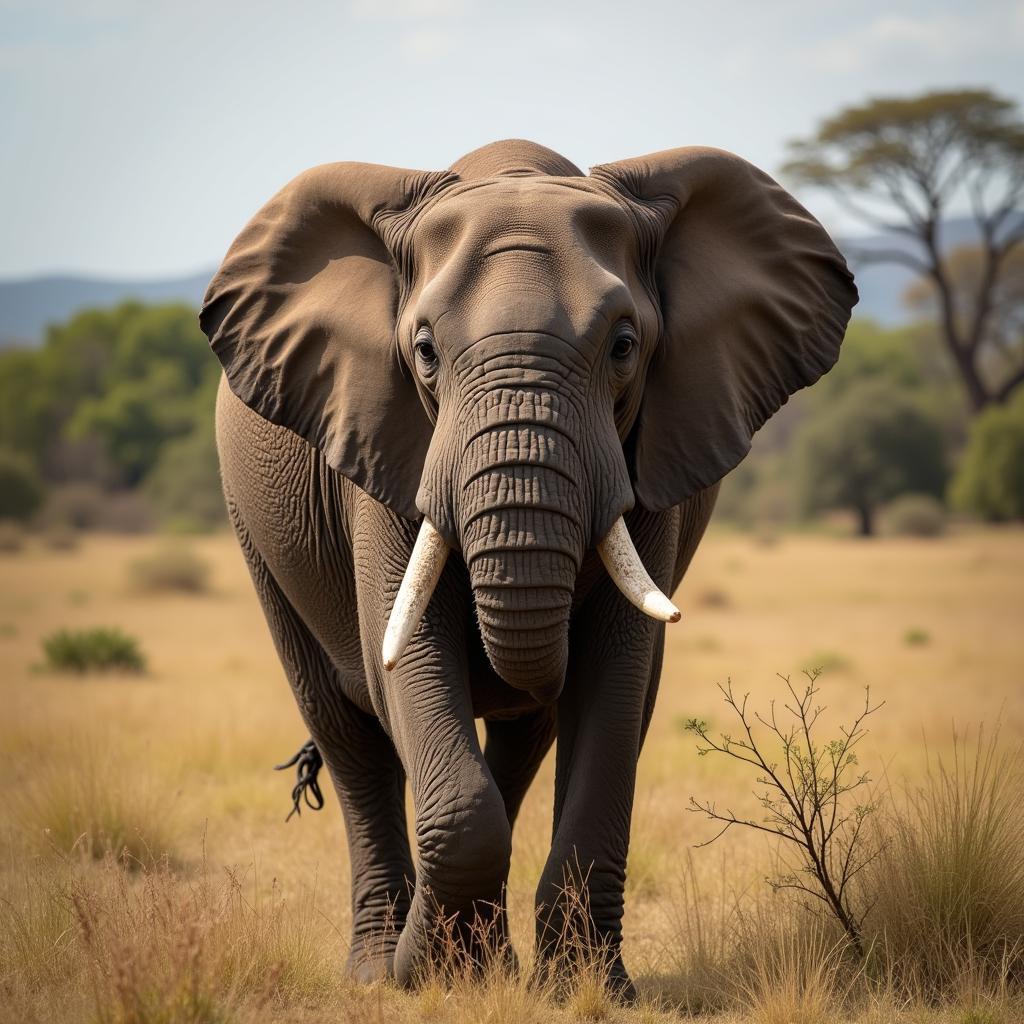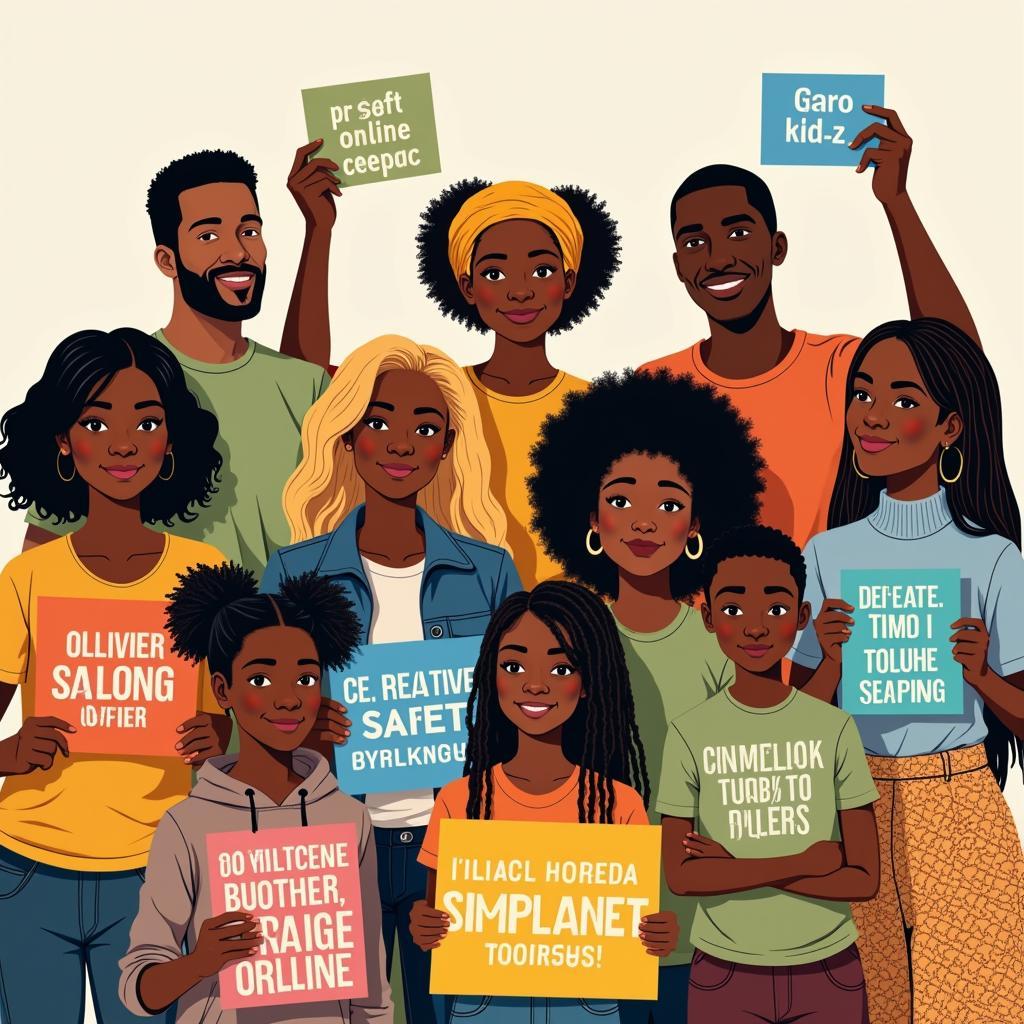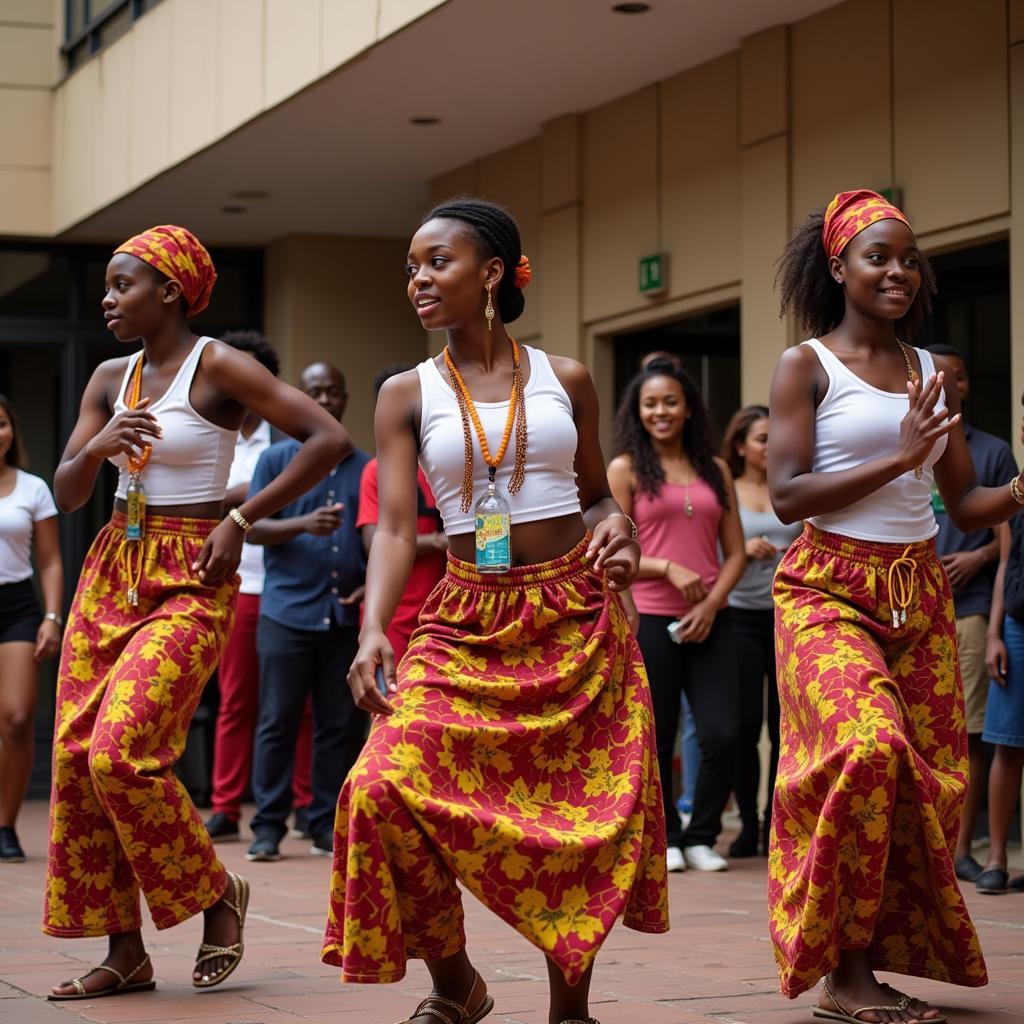African Hair Painting: A Colorful Journey Through Culture and Tradition
African Hair Painting, a centuries-old tradition, goes far beyond mere aesthetics. It’s a vibrant language, a visual chronicle of cultural heritage, personal identity, and social standing, woven into the very fabric of communities across the continent. From intricate geometric patterns to bold, symbolic motifs, each design tells a story, whispers ancient tales, and reflects the diverse tapestry of African Life.
More Than Just a Style: Unveiling the Significance
In many African cultures, hair is considered sacred, a physical manifestation of one’s spirit and connection to the divine. It’s believed that the head occupies a position of power, and therefore, adorning it becomes an act of reverence. Hair painting, often using natural pigments derived from plants, minerals, and clays, elevates this act to an art form.
These painted designs act as visual cues, communicating a person’s tribe, age, marital status, social role, and even spiritual beliefs. For example, a young woman entering womanhood might wear a specific pattern, while a married woman from the same tribe would display a completely different design. These visual cues foster a sense of belonging and identity within the community.
A Kaleidoscope of Techniques and Materials
The techniques employed in African hair painting are as diverse as the continent itself. Some involve applying the paint directly to the hair, creating bold, graphic patterns. Others utilize intricate braiding techniques, incorporating the paint into the braids for a subtler, textured effect.
Materials used vary widely, reflecting the natural resources available in different regions. Ochre, a natural clay earth pigment, produces rich earthy tones. Henna, a plant-based dye, creates vibrant reddish-brown hues. Other natural ingredients include indigo, charcoal, fruits, and berries, each contributing to the kaleidoscope of colors adorning African hair.
From Ancient Roots to Modern Expressions
While rooted in tradition, African hair painting isn’t static. As with any art form, it continues to evolve, reflecting contemporary influences and individual creativity. Today, we see a resurgence of interest in traditional hair painting techniques, with contemporary artists and individuals incorporating these ancient practices into modern styles.
This fusion of old and new has brought African hair painting to the global stage, inspiring designers, artists, and fashion enthusiasts worldwide. It serves as a powerful reminder of the beauty, resilience, and enduring legacy of African culture.
FAQs About African Hair Painting
What is the significance of hair in African culture?
Hair holds deep cultural and spiritual significance in many African cultures, often seen as a symbol of identity, status, and connection to ancestors.
What are some common materials used in African hair painting?
Common materials include natural pigments like ochre, henna, indigo, charcoal, and extracts from fruits and berries.
Is African hair painting only for women?
No, while often associated with women, hair painting traditions extend to men in some cultures, particularly for rituals, ceremonies, and displays of social standing.
Are there modern interpretations of African hair painting?
Yes, contemporary artists and individuals are incorporating traditional techniques into modern styles, showcasing the versatility and enduring appeal of this art form.
Where can I learn more about African hair painting?
To delve deeper, explore online resources dedicated to African face wall art, cultural magazines, and books showcasing the artistry and cultural significance of this tradition.
Exploring the Rich Tapestry of African Culture
African hair painting, with its vibrant history and evolving expressions, offers a captivating glimpse into the rich tapestry of African culture. It reminds us of the power of art to transcend time, connect generations, and celebrate the beauty of human diversity. To learn more about African traditions, explore our article on African business names. And for a taste of African culture, discover the delights of African cuisine at Forum Mall.
If you are passionate about African art and want to bring a piece of this rich heritage into your home, consider exploring our collection of exquisite African doll pairs.
For coffee enthusiasts seeking an authentic taste of Africa, our selection of premium African coffee online in India will tantalize your taste buds.



